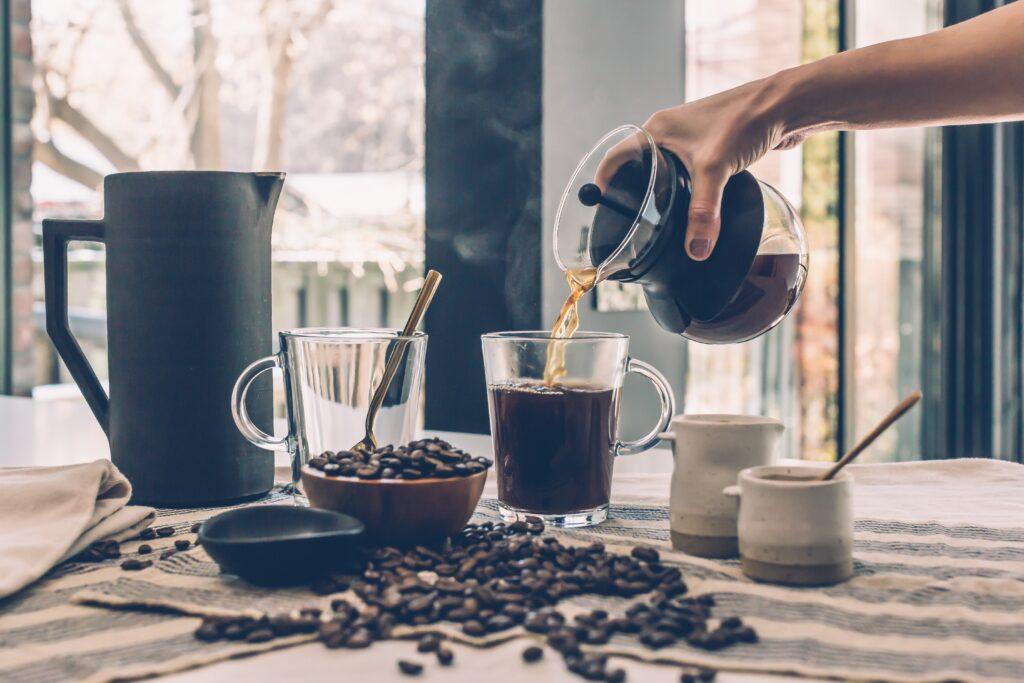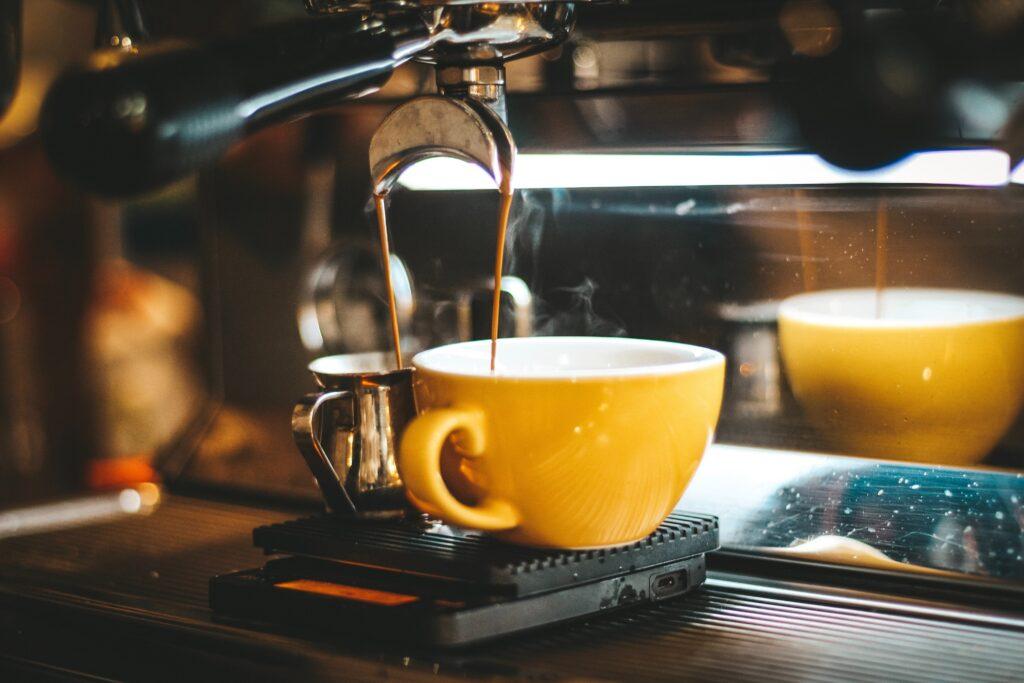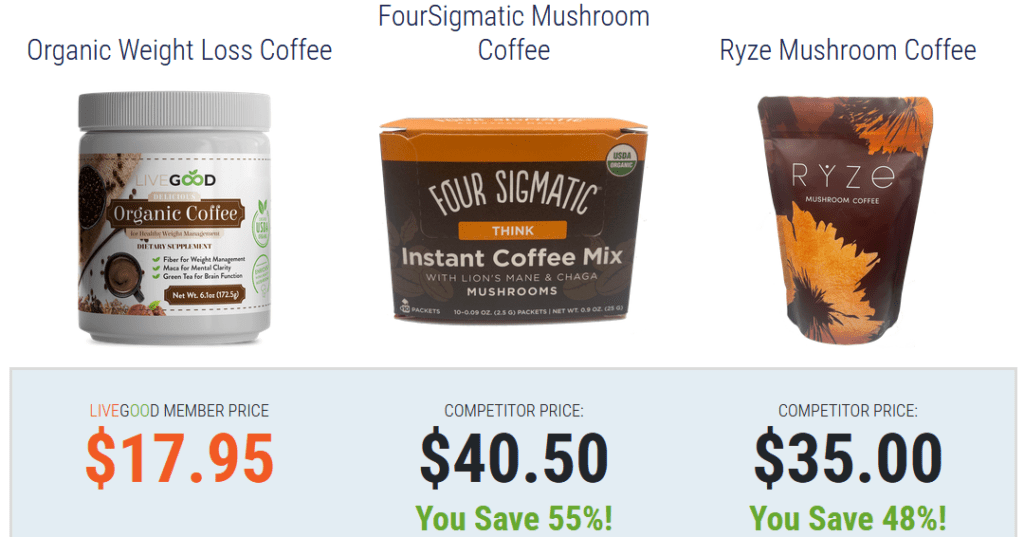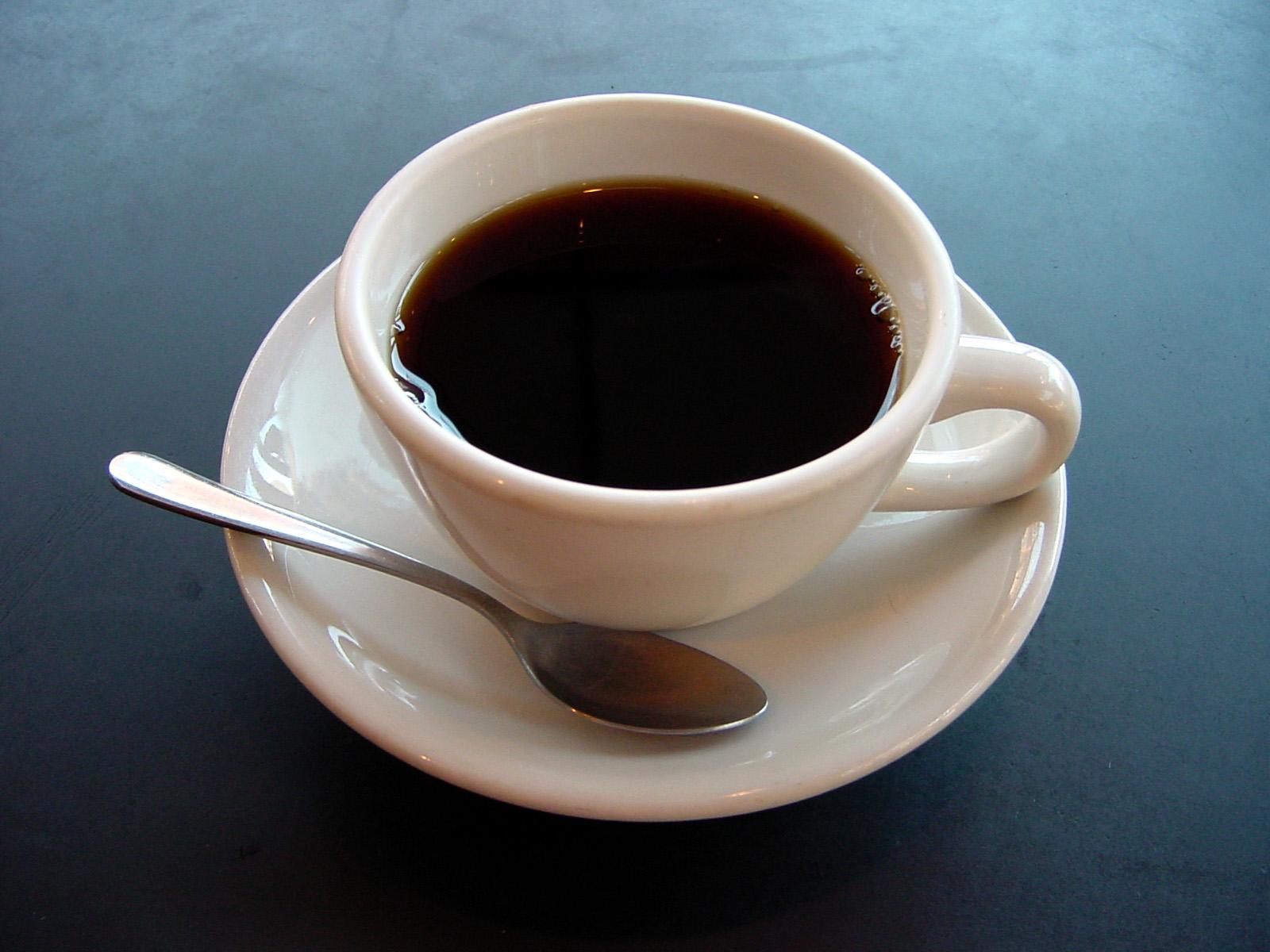Drinking Coffee to Lose Weight: Pros and Cons

The Pros and Cons of Drinking Coffee to Lose Weight
The myriad of potential health benefits that coffee provides are quite well-known. Drinking coffee promotes a longer lifespan, supports muscle function, improves digestive health and sharpens the cognitive function. It also helps in lowering the risks of developing chronic diseases such as Type 2 diabetes and dementia. The caffeine content in coffee improves energy, boosts metabolism, and can further weight loss. When it comes to coffee helping with weight loss though, there are pros and cons that need to be considered because its efficacy will depend on how they apply to you. This is a quick guide that you can use to weigh the pros and cons properly and be able to use the pros to your advantage.
PRO: Coffee can help tone down hunger pangs
What is required in weight loss is a minimal calorie deficit or calories that are fewer than what you can burn as you go through your activities daily or through exercise. And when you are drinking coffee, it can help in tipping the scales to your favor. Amanda Kostro Miller, RD explains that the caffeine acts as an appetite suppressant and can curb hunger in between your regular meals. For those who are on an intermittent fasting program, drinking black coffee helps them quiet hunger bells without disrupting their fasting mode. It is good to note that when you drink coffee at least half an hour before your meals, it can help you eat less than usual.
This recommendation is based on a review that was published via the International Journal of Food Sciences and Nutrition. Logically speaking, drinking coffee can make you feel full even before you eat, so this is indeed good practice when you are looking to lose weight. In another study, the results show that the reduction in your appetite can take effect longer and even extend until the next day when you drink coffee in moderate amounts of 6.7 ounces per day or 200 ml a day. This especially holds true for those who are living with obesity or are overweight. So remember to drink coffee before your meals and drink in moderation to help you shed some pounds.

CON: Drinking coffee can make you crave for more sweets
The thing about drinking coffee is that it often goes together with a habit that can be nasty if you are trying to slim down. If you are one of those who cannot have coffee without cake, a pastry, or some other dessert, then drinking coffee this way is definitely a disadvantage. Apparently, coffee can encourage your cravings for sweets. A study published via the Journal of Food Science revealed that caffeine does trigger sweet tooth cravings as it tweaks one’s perception of sweetness. It is not a surprise then if you are constantly ordering some cheesecake or donuts each time you hang out for coffee at the corner café. Come to think of it, what is coffee without some hot, moist muffins to go with it, right? Unless you can have desserts that are considered low-carb or keto-friendly, then drinking black coffee with them could probably work. Otherwise, drinking coffee to lose weight will defeat its very purpose. Unless you can drink coffee without the sweets, then ditch the coffee and try other drinks that will give you the benefits of weight loss without encouraging your sweet tooth cravings.
The other relevant issue that can turn drinking coffee into a con is what is typically added to plain coffee or espresso. Typical add-ons can include packets of sugar, lots of cream, flavored syrups, and all the delicious toppings that you can think of to boost its taste. While they are meant to offset the bitter flavor of coffee, it tends to be a big-time calorie bomb when you overdo it. On its own, coffee is actually a low-calorie drink so try to stick to enjoying your coffee black or take the healthier route and minimize the add-ons. If you are determined to lose weight this time, skip the caramel macchiato, mocha java frappe, or hazelnut latte and just stick to brewed coffee or Americano. At the café, you can also choose to customize your drink and make it into a no-sugar version or natural sweetener version to help you stay on track.
PRO: Coffee can make tougher workouts easier to take on
Supporting your healthy diet with consistent exercise can really up the ante when you are working on losing weight. Regular exercise is easier said than done though and coffee can prove to be of big help in this regard. If you have been struggling with making exercise a part of your daily routine, you can try drinking coffee before you start your workout. As mentioned earlier, coffee is great in boosting your energy so when you have your dose of caffeine pre-workout, then you will certainly feel more energetic as you hit the gym. Think iced coffee to awaken the senses or hot black coffee to warm you up.
Caffeine and its stimulating effects are going to help enhance your muscle strength, get that blood pumping, and increase your power and endurance. It could even lower your perception as to how hard you are actually working out. So instead of loading up on carbs to fuel your sweat sessions, go for coffee and power up your workouts. However, Kostro Miller reminds gym enthusiasts to drink lots of water to stay hydrated. Electrolytes are also best especially when you intend to exercise for more than an hour. It is time for you to concoct a new workout drink with diet-friendly, delicious coffee.
CON: Not everyone has the same response to coffee
Just as there are different personality types, people can also have different responses when it comes to drinking coffee. Every “body” is not made the same so the supposed effect of coffee will likewise be varied from one individual to the next. It is most likely that you have experienced this yourself or have noticed this in others and that is because coffee may affect you in a radically different manner in comparison to somebody else. While drinking coffee makes someone feel good, the other is having some upset stomach and vows not to have a cup ever again. While others cannot live without coffee, the rest have better days not having coffee ever. The individualized response to coffee can mostly be attributed to one’s genetic makeup and how certain genes determine how the body processes your caffeine consumption. Apparently, there are those who are considered fast metabolizers while others are slow metabolizers.
The fast metabolizers belong to the group who can drink coffee as much as they can and benefit highly from it while the slow metabolizers are the exact opposite. When slow metabolizers drink coffee, they can suffer from higher risks of developing prediabetes, heart attack, and high blood pressure. Instead of a boost of energy and muscle strength, slow metabolizers will also notice a decrease in their athletic performance. In addition, remember that coffee is a mixture of a thousand chemicals and the cup that you brew at home is not the same as the one you enjoy in a café. The difference can also lie in other factors such as the type of coffee beans, amount of grind, how they are roasted, and how they are brewed. How much coffee you drink can also affect you differently. Caffeine at low to moderate doses at 50 mg to 300 mg can result in increased energy, alertness, and ability to concentrate. But doses higher than that or more than 400 mg can have negative effects on your body’s overall functioning including increased heart rate, insomnia, restlessness, and anxiety.

The final verdict
If you take a look at the cumulative research on coffee, it will tell you that it is beneficial for your health. And so the bottom line is that, it is desirable to drink coffee if your ultimate goal is to lose weight. It is definitely a low-calorie beverage option that can give you the energy that you need while tasting so good. In general, the effect of caffeine is going to be different from one person to the next but it is considered safe to drink 3 to 4 cups a day equivalent to up to 400 mg of caffeine. You just have to drink water as much as you can and remember not to use coffee to replace your meals. Despite what marketers are saying about coffee, it is no magic bullet when it comes to weight loss.
It is true that promising studies have found how caffeine can boost your weight loss efforts. However, it is not an end all because losing weight involves going for a holistic approach that includes engaging in consistent exercise, consuming nutritious foods, and creating a small calorie deficit. When it comes to the pros and cons, the trick is to make it work to your advantage by avoiding the cons and focusing on working on the pros.
Get the best organic mushroom blend of coffee today for only $17.95







